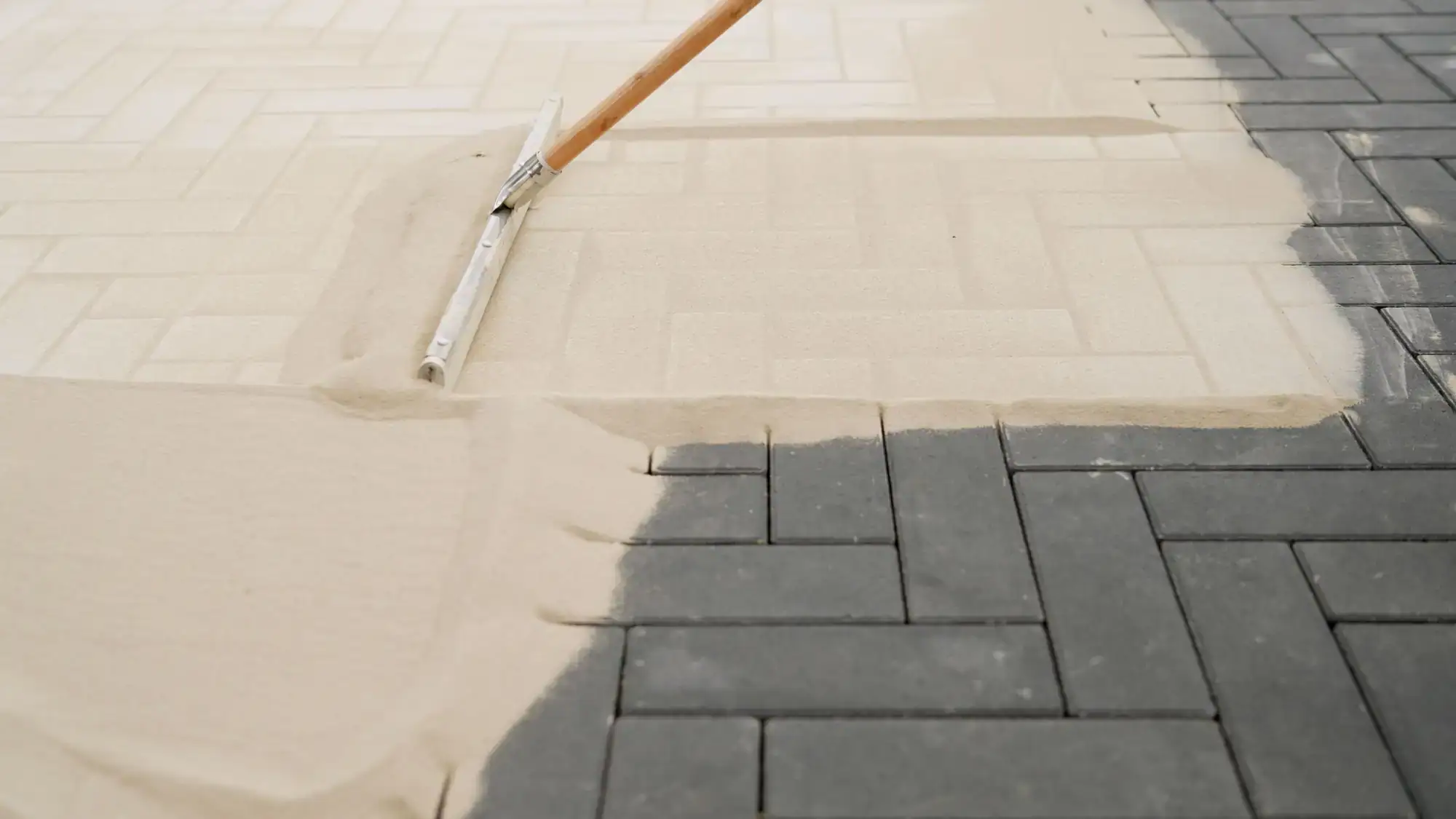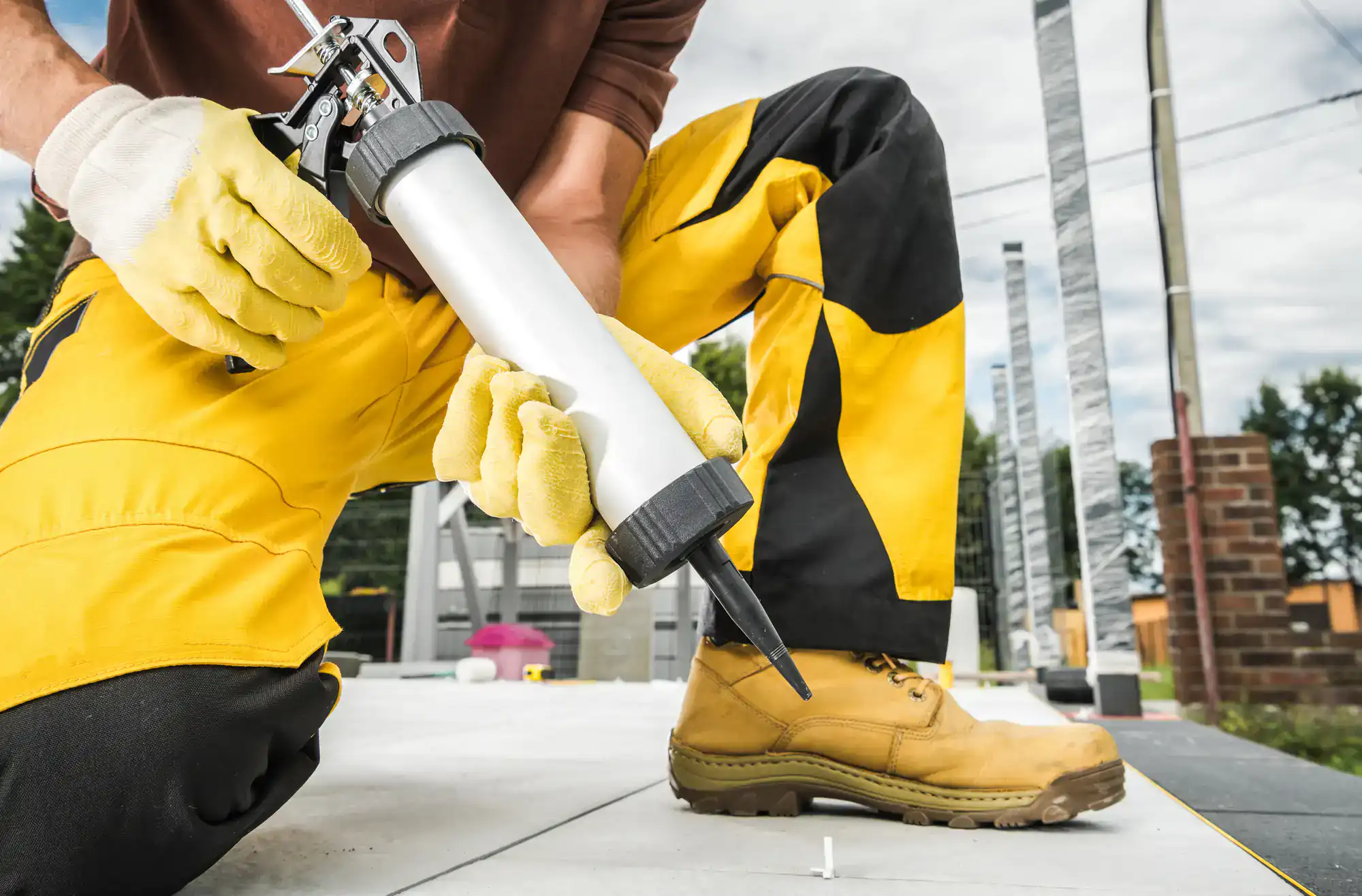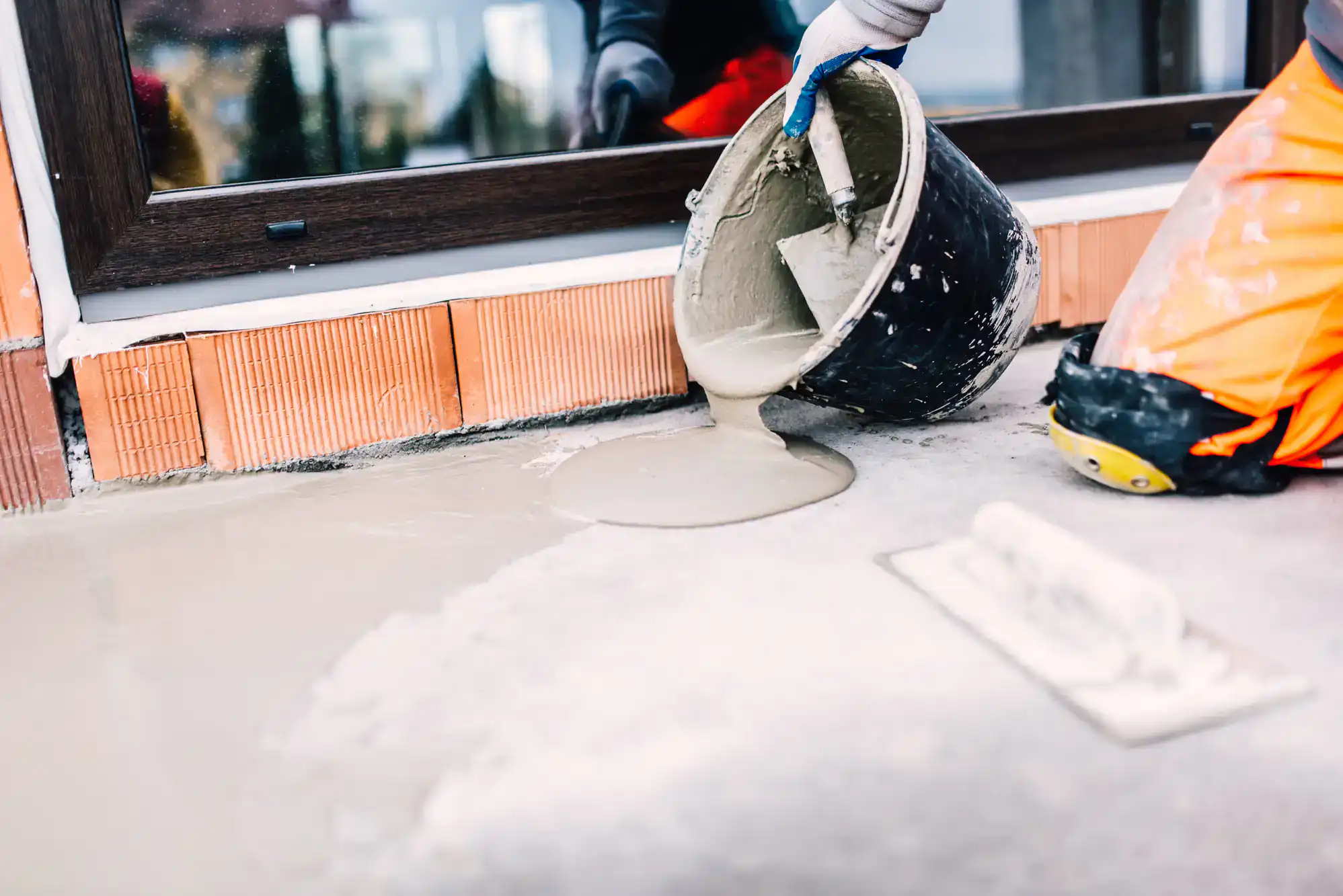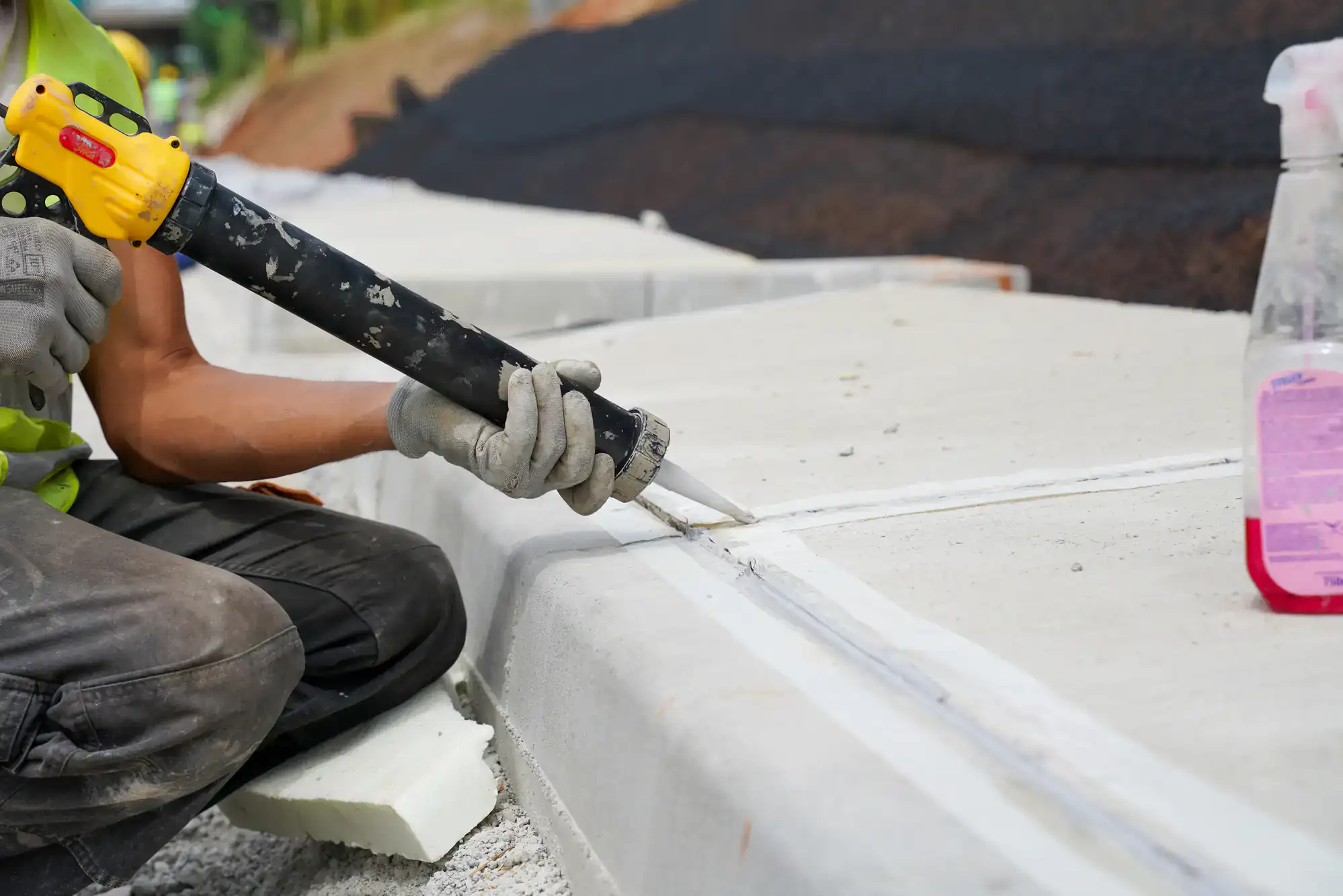Concrete Sealing in Miami, FL
Stop Miami’s Humidity From Destroying Your Floors

Hear from Our Customers

Miami Commercial Concrete Protection
Miami’s 75% humidity levels destroy improperly sealed concrete faster than anywhere else in the country. You’re not dealing with normal weather conditions here.
When we seal your concrete properly, you get floors that resist moisture penetration, prevent mold growth, and stay structurally sound for decades. No more sweating slabs, no more costly emergency repairs, and no more wondering if your floors will hold up to another hurricane season.
The difference is night and day. Sealed concrete handles Miami’s humidity, daily thunderstorms, and temperature swings without breaking down or requiring constant maintenance.
South Florida Concrete Sealing Experts
We’ve been protecting concrete in South Florida for over two decades. We understand what Miami’s climate does to unsealed concrete because we’ve seen it destroy millions of dollars in flooring.
From South Beach to Kendall, we’ve sealed thousands of concrete surfaces that are still performing perfectly years later. We’re not just another contractor—we’re the team that figured out how to make concrete sealing work in this impossible climate.
Our approach combines proven techniques with climate-specific solutions. When other contractors fail because they don’t understand Miami’s unique moisture challenges, we deliver results that last.

Professional Concrete Sealing Process Miami
First, we assess your concrete’s moisture levels and identify problem areas. Miami’s humidity creates unique conditions that require specialized testing before any sealer touches your floors.
Next, we prepare the surface using industrial-grade equipment. This isn’t a quick spray-and-pray job. Proper surface preparation is critical in high-humidity environments like Miami, where shortcuts lead to failure.
Then we apply the right sealer for your specific conditions. Penetrating sealers work best in Miami’s climate because they protect against salt damage and moisture while letting concrete breathe. We use climate-controlled application techniques to ensure proper curing despite the humidity.
Finally, we verify the seal integrity and provide you with a maintenance schedule. In Miami’s tropical climate, most sealed concrete needs attention every 2-3 years, but proper application extends that timeline significantly.

Ready to get started?
Miami Moisture Control Flooring Solutions
Our concrete sealing service includes complete moisture testing, surface preparation, and application of commercial-grade sealers designed specifically for South Florida’s demanding climate.
You get protection against Miami’s unique challenges: 20% higher water vapor than other regions, daily temperature swings that create destructive pressure, and hurricane-force rains that penetrate unsealed concrete. We use penetrating sealers that soak deep into concrete like moisturizer into skin, creating lasting protection.
The result is concrete that resists stains, prevents mold growth, reduces slip hazards, and maintains its structural integrity for decades. No more emergency repairs during hurricane season, no more costly resurfacing projects, and no more wondering if your floors will survive another Miami summer.
We also provide ongoing maintenance support because even the best sealing job needs periodic attention in this climate. Our team monitors your floors and recommends resealing before problems develop.

How often does concrete need resealing in Miami’s climate?
In Miami’s tropical climate, most concrete surfaces need resealing every 2-3 years, though high-traffic areas might need attention every 18 months. The timeline depends on your specific exposure to humidity, foot traffic, and weather conditions.
Miami’s 75% humidity levels and frequent thunderstorms create more demanding conditions than most other locations. Penetrating sealers typically last longer than surface coatings because they work with the concrete rather than just sitting on top of it.
We provide maintenance schedules tailored to your specific situation and will inspect your concrete annually to determine when resealing is actually needed, not just when the calendar says it’s time.
What type of concrete sealer works best in Miami?
Penetrating sealers are the best choice for Miami’s climate because they protect against salt damage and moisture while allowing concrete to breathe. These sealers soak into the concrete and create protection from within, rather than forming a film that can trap moisture underneath.
Acrylic sealers are more affordable but need frequent reapplication in Miami’s harsh conditions. Polyurethane sealers offer superior UV resistance, which is crucial for Miami’s intense sunshine, but cost more upfront.
We select the right sealer based on your specific environment, traffic levels, and budget. The key is matching the sealer chemistry to Miami’s unique combination of high humidity, UV exposure, and temperature fluctuations.
Can concrete sealing prevent moisture problems in Miami buildings?
Yes, but only when applied correctly with the right products for Miami’s climate. Concrete sealing creates a barrier that prevents water penetration and reduces the moisture transmission that causes sweating slab syndrome and mold growth.
The key is using industrial-grade moisture barriers and climate-controlled application techniques. Consumer-grade products from hardware stores typically fail in Miami’s high-humidity conditions within months.
Professional sealing also includes vapor barrier installation when needed and humidity monitoring during application. This prevents the trapped moisture issues that destroy 1 in 3 improperly sealed floor coatings in South Florida within 18 months.
How much does professional concrete sealing cost in Miami?
Professional concrete sealing costs vary based on square footage, concrete condition, and the type of sealer required for your specific application. However, the investment pays for itself by preventing costly repairs and extending your concrete’s lifespan.
Consider that repair costs average $4.50 per square foot when moisture damage occurs, often exceeding the original sealing cost. Emergency repairs during hurricane season can cost even more when contractors are in high demand.
We provide detailed estimates that include surface preparation, materials, and application. Most commercial projects see a positive return on investment within the first few years through reduced maintenance costs and avoided repairs.
What happens if concrete isn’t sealed in Miami’s climate?
Unsealed concrete in Miami faces constant attack from humidity, salt air, and moisture penetration. The result is sweating slab syndrome, where moisture accumulates on surfaces, plus cracking, spalling, and structural deterioration.
Miami’s air holds 20% more water vapor than other regions, creating destructive pressure that lifts finishes and causes bubbling, peeling, and cloudy discoloration. Small cracks turn into expensive repairs, and mold growth becomes a health hazard.
The damage accelerates over time. What starts as minor surface issues becomes major structural problems requiring complete concrete replacement. Hurricane season makes everything worse as water penetrates existing cracks and causes further deterioration.
How long does concrete sealing take to cure in Miami?
Concrete sealing cure times in Miami are longer than in drier climates due to the high humidity levels. Most sealers need 24-48 hours for initial cure, but full strength develops over 7-14 days depending on weather conditions.
We use industrial dehumidifiers and climate-controlled application techniques to ensure proper curing despite Miami’s challenging conditions. Temperature and humidity monitoring prevent the premature curing that causes sealer failure.
Winter months (December through February) offer ideal application conditions with lower humidity and cooler temperatures. Summer applications require early morning timing and expert weather monitoring to avoid afternoon thunderstorms that can ruin fresh sealer applications.
Other Services we provide in Miami





